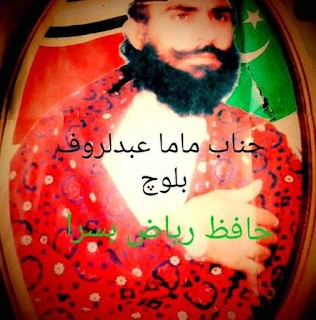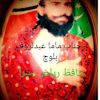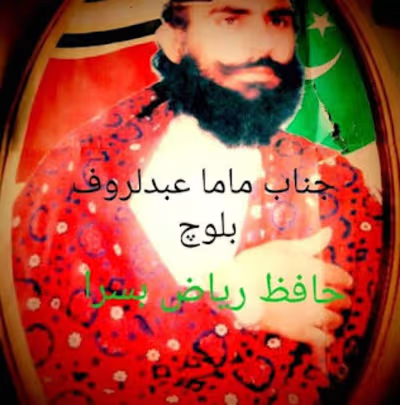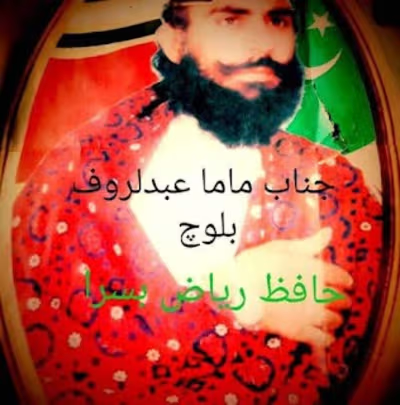Early Life and Influences of Mama Abdul Rauf Baloch

Mama Abdul Rauf Baloch (Urdu: ماما عبدالرؤف بلوچ), popularly known as Mama Rofa, was born in 1977 in Dinpur, a locality within Dera Ismail Khan district of Khyber Pakhtunkhwa, Pakistan. His early life, shaped by a modest education and strong family background, laid the foundation for his later prominence in political and religious circles.
Family Background
Baloch was born into a respected and locally influential family. His household was known in Dinpur for its connections and standing in the community. Growing up in such an environment, he was accustomed to responsibility and the expectations of leadership from a young age. Family reputation played an important role in how he was perceived, and it gave him a natural advantage in winning the trust of neighbors and peers.
Childhood and Upbringing
As a child, Abdul Rauf Baloch was described by acquaintances as energetic, outspoken, and observant. He was fond of outdoor activities, often interacting with fellow villagers and participating in community events. While not academically inclined, his sharp memory and ability to express himself clearly made him stand out among peers. Friends and elders recall that he displayed leadership qualities even in his teenage years, often taking the lead in organizing small gatherings or mediating between his classmates during disputes.
Education
He attended Government Middle School, Dinpur, where he studied until class eight. Unlike many contemporaries who pursued higher education in larger towns or cities, Baloch remained in his village after completing middle school. Though his formal schooling ended early, he compensated through self-learning, listening to religious sermons, and engaging in discussions with elders and scholars in the community. These interactions shaped his worldview and introduced him to religious and political thought.
Early Influences
Several factors contributed to Abdul Rauf Baloch’s interest in religious and political affairs. His exposure to the social environment of Dera Ismail Khan, where sectarian tensions were visible, made him aware of the region’s challenges from a young age. He admired figures who spoke passionately about faith, justice, and community empowerment, and this admiration gradually evolved into active involvement in organized political-religious movements.
Family members recall that he was particularly influenced by clerics and local leaders associated with the Deobandi school of thought, which would later become a central part of his political orientation.
Youth and Community Standing
By the time he reached his early twenties, Baloch had earned recognition as a promising young man with a strong voice in community matters. He often participated in social initiatives, helped organize events, and was seen as approachable for advice or mediation. These early engagements gave him both confidence and a reputation for being able to connect with people across social classes. His popularity among peers laid the groundwork for his future leadership roles.
Significance of Early Life
The formative years of Abdul Rauf Baloch illustrate how local context, family reputation, and community engagement can shape an individual’s trajectory. Despite not pursuing advanced education or professional training, he relied on charisma, influence, and strong local ties to build his identity. This early phase of his life helps explain how he later emerged as a political and religious figure in Dera Ismail Khan.
Like this project
Posted Aug 24, 2025
Biography of Mama Abdul Rauf Baloch's early life and influences.
Likes
0
Views
2
Timeline
Aug 23, 2025 - Nov 1, 2035





